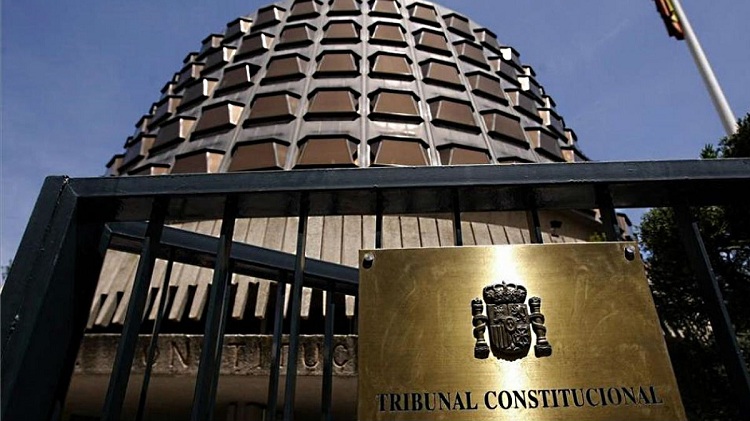Ángel Collado
The offensive to mimetically transfer the parliamentary majority that sustains him in power (socialists, communists and pro-independence supporters) to the Constitutional Court and the General Council of the Judiciary, the governing body of judges, is Pedro Sánchez’s basic bet to remain in Moncloa, according to the opposition.
The president of the Executive does not dissimulate in his speech: it is time for “progressive” majorities in all branches of government. The People’s Party is reluctant to enter into the pending renovations in these same bodies, convinced that Sánchez and his partners will take advantage of the replacements to go beyond the constitutional framework and open the way to a covert regime change that will give continuity to Sánchez’s personal project and his commitments to the extreme left (Podemos) and the separatist parties.
That is the underlying issue, the fight for control of Justice and the TC as the supreme interpreter of the Constitution, of the institutional crisis in Spain at the expense of the division of powers. Since 1983, the two major parties, PSOE and PP, had always agreed, albeit late and badly, to share out quotas of influence over the CGPJ and the Constitutional Court. The main novelty is that the Socialists are now competing for the distribution in alliance with the populist extreme left and secessionist groups.
The answer of the Popular Party has consisted of entrenching itself in the principle that neither the Constitution in its origin, nor the parameters of the EU in terms of the independence of the judiciary, nor public opinion admits any more distributions according to party quotas. If for Sánchez it is clear that it is up to him to have a majority of members of the governing body of judges and the TC who are sympathetic to the political left and to his own person, for Alberto Núñez Feijóo it is clear that the politicisation of the CGPJ must end and the independence of the TC must be guaranteed.
“Give me your names” is the only response of the Executive to the proposals of the head of the opposition to unblock the renewal of the CGPJ. This was done in October 2021, with Pablo Casado still at the head of the PP, so that Congress could elect the four members of the TC that correspond to them. The law requires a three-fifths majority (210 deputies), which only the Popular Party and the Socialists can achieve. The government is sustained on the basis of the 155 seats that PSOE and Podemos group together.
The body that oversees compliance with the law is made up of a total of 12 jurists and magistrates who are obligatorily renewed by thirds, and the one that needs to be changed now is the appointment, on a par, of the two members who correspond directly to the Executive and the two who depend on the CGPJ. This is the moment Sánchez has been waiting for to change the current majority of the TC, which he considers “conservative”, for a “progressive” one.
The head of the Executive has gone so far as to remove, by law, the powers of appointment from the judges’ governing body, considering it “out of date”, and with another reform of the same law to give them back to it months later, a parliamentary pirouette completed in July to force the same CGPJ to now appoint its two representatives to the Constitutional Court. The whole manoeuvre obeyed his interest in not delaying the change of direction in the Constitutional Court, which he wants to complete this month.
The Constitutional Court, which has been disavowing the decrees with which Sánchez faced the pandemic, is pending examination of many of the legal reforms that the coalition government of socialists and communists have approved this legislature with the support of the pro-independence supporters. They are being appealed by the opposition precisely because they are considered to go beyond the law of laws.
But the People’s Party greatest fear is that this ‘assault on the institutions’ of which it accuses the executive will in the future serve to pay the bills for Sanchez’s alliance with the Catalan and Basque independentistas, heirs in the case of Bildu to the political arm of the ETA terrorists included.
The prime minister has pledged to the Catalan Generalitat’s Pere Aragonés to “de-judicialise the conflict”, which for the separatists is tantamount to impunity before the law, and to open negotiations for Catalonia’s secession on the basis of an unconstitutional referendum.
In the case of Bildu, its spokesman and former ETA gunman Arnaldo Otegi directly explained that his party needs Sánchez’s continuity in power to get his fellow ETA members out of jail. To satisfy both sides, Sánchez needs to control the judiciary and have a Constitutional Court as sympathetic as possible.






